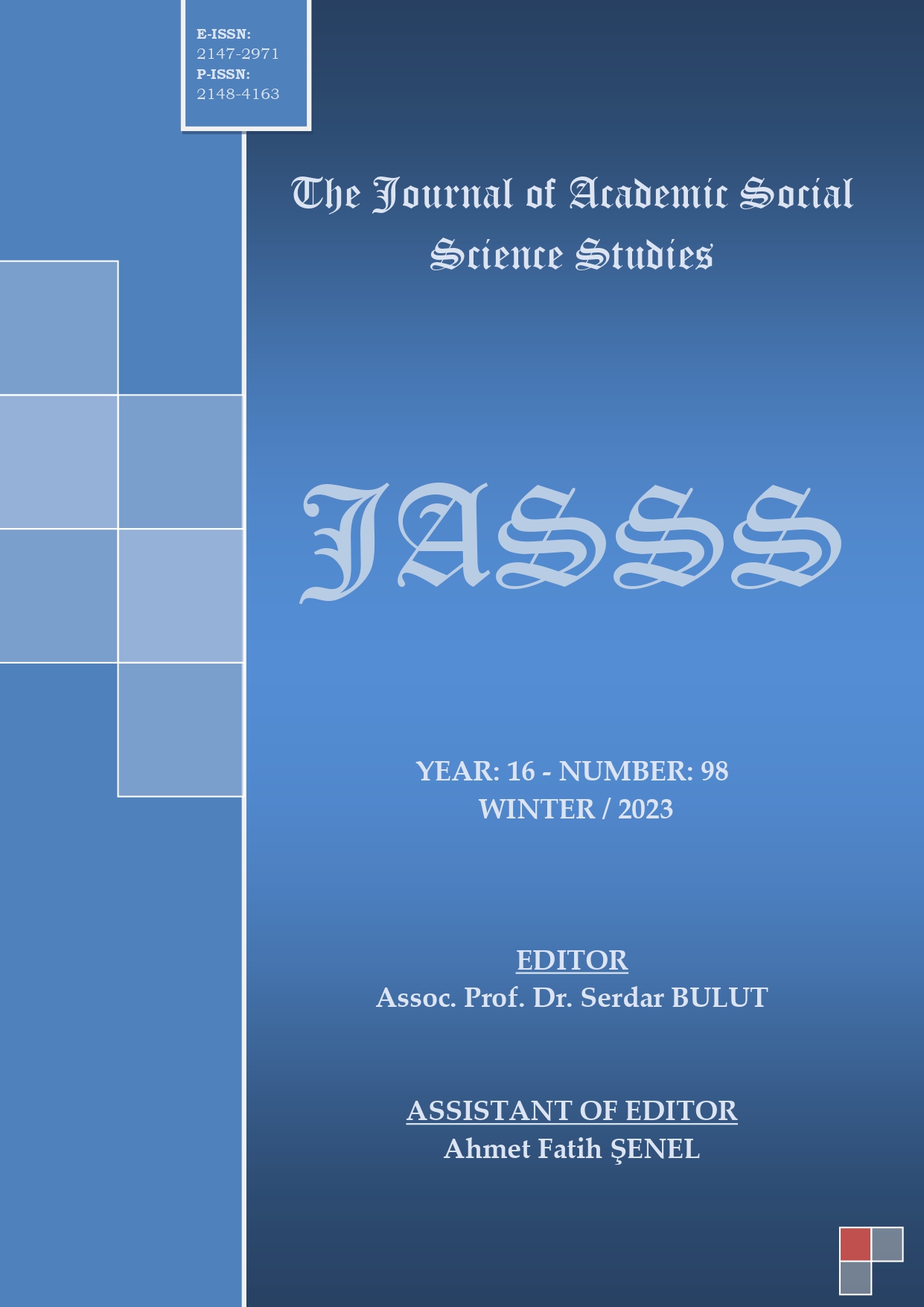Author :
Abstract
2019 yılında Çin’in Vuhan eyaletinde ortaya çıkan Covid-19 salgını, kısa sürede yayılmış ve tüm dünyayı etkisi altına almıştır. Hızla yayılan salgının önüne geçebilmek için ülkeler, gerekli önlemleri almaya başlasa da 2020 yılının mart ayında Türkiye’de de ilk vakalar ortaya çıkmıştır. Birçok ülkede, salgının hızla yayılmasını önlemek ve bulaşıcılık oranını azaltmak için karantina uygulamasına geçilmiştir. Bu uygulamanın doğal bir sonucu olarak okullarda yüz yüze gerçekleştirilen eğitime ara verilmiştir. Bu durum, eğitim-öğretim faaliyetlerini sürdürebilmek için yeni arayışları da beraberinde getirmiştir. Bu zorlu süreçte, ülkemizde ara verilen eğitim faaliyetlerine uzaktan eğitim yoluyla devam edilmesine karar verilmiştir. Kısa bir süre içerisinde zorunluluktan doğan bu yeni uygulama, ilk başta eğitimin tüm paydaşlarını zorlasa da ilerleyen süreçte uzaktan eğitime uyum sağlanmıştır. Bu noktadan hareketle bu araştırma, Sınıf Eğitimi öğretmen adaylarının uzaktan ve yüz yüze eğitime ilişkin metaforik algılarını belirlemek amacıyla gerçekleştirilmiştir. Araştırmada nitel araştırma yöntemlerinden olgu bilim yöntemi kullanılmıştır. Araştırmanın çalışma grubunu, 2019-2020 eğitim-öğretim yılı güz yarıyılında Alanya Alaaddin Keykubat Üniversitesi Eğitim Fakültesi Sınıf Eğitimi Anabilim Dalında öğrenim gören 56 dördüncü sınıf öğretmen adayı oluşturmuştur. Çalışma grubunun belirlenmesinde amaçlı örnekleme yöntemlerinden ölçüt örnekleme yöntemi kullanılmıştır. Sınıf Eğitimi öğretmen adaylarının 1 yıl uzaktan eğitim almış olmaları ölçüt olarak kabul edilmiş ve bu ölçütü sağlayan 56 dördüncü sınıf öğretmen adayı çalışma grubuna dâhil edilmiştir. Araştırmada veri toplama aracı olarak 2 açık uçlu sorudan oluşan bir form kullanılmıştır. Sınıf Eğitimi öğretmen adaylarından “Uzaktan Eğitim...............gibidir. Çünkü...............” ve “Yüz Yüze Eğitim...............gibidir. Çünkü...............” ifadelerini tamamlamaları istenmiştir. Araştırmadan elde edilen verilerin analizinde nitel analiz yöntemlerinden içerik analizi kullanılmıştır. Elde edilen bulgular doğrudan alıntılarla desteklenmiştir. Öğretmen adaylarının uzaktan eğitim kavramına ilişkin metaforları, uzaktan eğitime bakış açılarının önemli ölçüde olumsuz olduğunu göstermektedir. Bununla birlikte bazı öğretmen adayları, uzaktan eğitimle ilgili olumlu ve hem olumlu hem de olumsuz görüşlere sahiptirler. Öğretmen adaylarının yüz yüze eğitim hakkındaki metaforları, yüz yüze eğitime bakış açılarının önemli ölçüde olumlu olduğunu göstermektedir. Bunun yanı sıra bazı öğretmen adayları, yüz yüze eğitimle ilgili olumsuz görüşlere sahipken bazıları hem olumlu hem de olumsuz görüşlere sahiptirler.
Keywords
Abstract
The Covid-19 epidemic, which emerged in Vuhan, China in 2019, spread in a short time and affected the whole world. Although the countries started to take the necessary measures to prevent the rapidly spreading epidemic, the first cases emerged in Turkey in March 2020. In many countries, quarantine has been implemented to prevent the rapid spread of the epidemic and to reduce the contagious rate. As a natural consequence of this practice, face-to-face education in schools was suspended. This situation has brought along new searches in order to continue educational activities. In this difficult process, it has been decided to continue the education activities suspended in our country through distance education. Although this new application, which emerged out of necessity in a short time, challenged all the stakeholders of education at first, adaptation to distance education was achieved in the following process. From this point of view, this research was carried out in order to determine the metaphorical perceptions of prospective classroom education teachers about distance and face-to-face education. The phenomenology method, one of the qualitative research methods, was used in the research. The study group of the research consisted of 56 fourth grade teacher candidates studying at Alanya Alaaddin Keykubat University, Faculty of Education, Department of Classroom Education in the autumn semester of the 2019-2020 academic year. Criterion sampling method, one of the purposive sampling methods, was used to determine the study group. It was accepted as a criterion that the pre-service primary education teachers had received distance education for 1 years and 56 fourth grade pre-service teachers who met this criterion were included in the study group. A form consisting of 2 open-ended questions was used as a data collection tool in the research. From teacher candidates, the statements : “Distance Education is like......; because………..” and “Face-to-Face Training is like……….. ;because …………” were asked to complete. Content analysis, one of the qualitative analysis methods, was used in the analysis of the data obtained from the research. The findings were supported by direct quotations. The metaphors of teacher candidates regarding the concept of distance education show that their perspectives on distance education are significantly negative. However, some pre-service teachers have positive and both positive and negative views about distance education. Pre-service teachers' metaphors about face-to-face education show that their perspectives on face-to-face education are significantly positive. In addition, some pre-service teachers have negative views about face-to-face education, while others have both positive and negative views.





